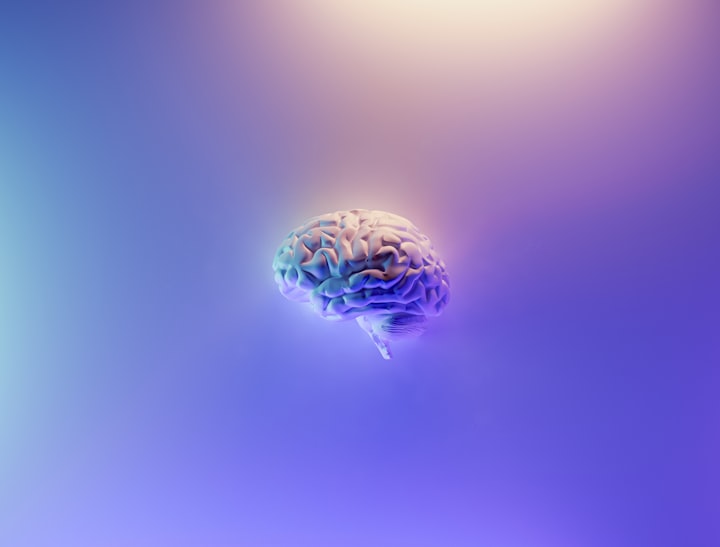
Title: The Remarkable Support of the Brain for the Human Body
Introduction:
The human brain is an extraordinary organ that serves as the command center of the body. It is responsible for processing information, controlling bodily functions, and coordinating complex actions. From the moment we wake up to the moment we fall asleep, the brain tirelessly works to support and maintain our bodies. This essay delves into the incredible ways in which the brain supports our body, highlighting its essential functions and its intricate relationship with other bodily systems.
1. Control and Regulation:
The brain is responsible for maintaining homeostasis, the delicate balance of internal conditions necessary for our well-being. Through the autonomic nervous system, the brain regulates vital functions such as heart rate, blood pressure, respiration, and body temperature. It orchestrates these processes by receiving sensory input, interpreting it, and sending appropriate signals to various organs and tissues, ensuring their optimal functioning.
2. Sensory Perception:
One of the brain's most fascinating roles is processing sensory information and enabling our perception of the world around us. The brain receives signals from the sensory organs, including the eyes, ears, nose, tongue, and skin, and translates them into meaningful experiences. It allows us to see vibrant colors, hear melodious sounds, taste delicious flavors, smell fragrant aromas, and feel a wide range of sensations. These sensory perceptions not only enhance our quality of life but also contribute to our survival and ability to adapt to the environment.
3. Motor Control:
The brain's ability to control voluntary and involuntary movements is crucial for our physical actions. It coordinates and executes complex movements, from the simplest tasks like walking and picking up objects to intricate actions like playing musical instruments or typing on a keyboard. The brain integrates information from various regions, including the motor cortex, cerebellum, and basal ganglia, to produce smooth and coordinated movements. This intricate process involves the precise timing and coordination of muscles, ensuring our ability to navigate the world around us.
4. Cognitive Functions:
Beyond its role in controlling bodily functions, the brain supports a vast array of cognitive functions that define human intelligence. These functions include memory, attention, language processing, problem-solving, decision-making, and creativity. The brain's cerebral cortex, with its intricate network of neurons, is responsible for these higher-order cognitive abilities. It enables us to learn from past experiences, communicate effectively, solve complex problems, make rational decisions, and unleash our creative potential.
5. Emotional Regulation:
The brain plays a pivotal role in our emotional experiences and regulation. The limbic system, a collection of brain structures, including the amygdala and hippocampus, is involved in processing emotions. It allows us to experience joy, sadness, anger, fear, and various other emotions. Moreover, the prefrontal cortex, responsible for executive functions, helps regulate and modulate emotions, allowing us to respond appropriately to different situations. The brain's emotional support system influences our mental well-being and influences our social interactions.
6. Learning and Adaptation:
The brain's plasticity, its ability to reorganize and adapt, is a remarkable aspect that supports our growth and development. Throughout our lives, the brain continuously forms new connections and strengthens existing ones, enabling learning and memory formation. It allows us to acquire new skills, gain knowledge, and adapt to changing environments. The brain's ability to learn and adapt also facilitates recovery from injuries or illnesses, as it can reroute functions to different regions and compensate for the damaged areas.
7. Sleep and Restoration:
The brain's support for the body extends to the realm of sleep and restoration. During sleep, the brain engages in crucial processes that consolidate memories, repair and regenerate cells, and restore energy levels. Sleep also plays a role in regulating mood, enhancing cognitive functions, and strengthening the immune
system. The brain orchestrates these restorative processes to ensure optimal functioning and well-being upon waking.
Conclusion:
The human brain's support for the body is nothing short of awe-inspiring. It controls and regulates bodily functions, processes sensory information, coordinates movements, supports cognitive functions, regulates emotions, facilitates learning, and promotes restoration during sleep. Its intricate network of neurons and the complex interactions between different brain regions allow us to experience the world, adapt to changes, and thrive as individuals. Understanding the remarkable ways in which the brain supports our body highlights the importance of nurturing and caring for this vital organ, as it is truly the foundation of our existence.
About the Creator
AIVAN AL LAUNICO
Passionate Vocalist | Engaging Content Creator





Comments
There are no comments for this story
Be the first to respond and start the conversation.